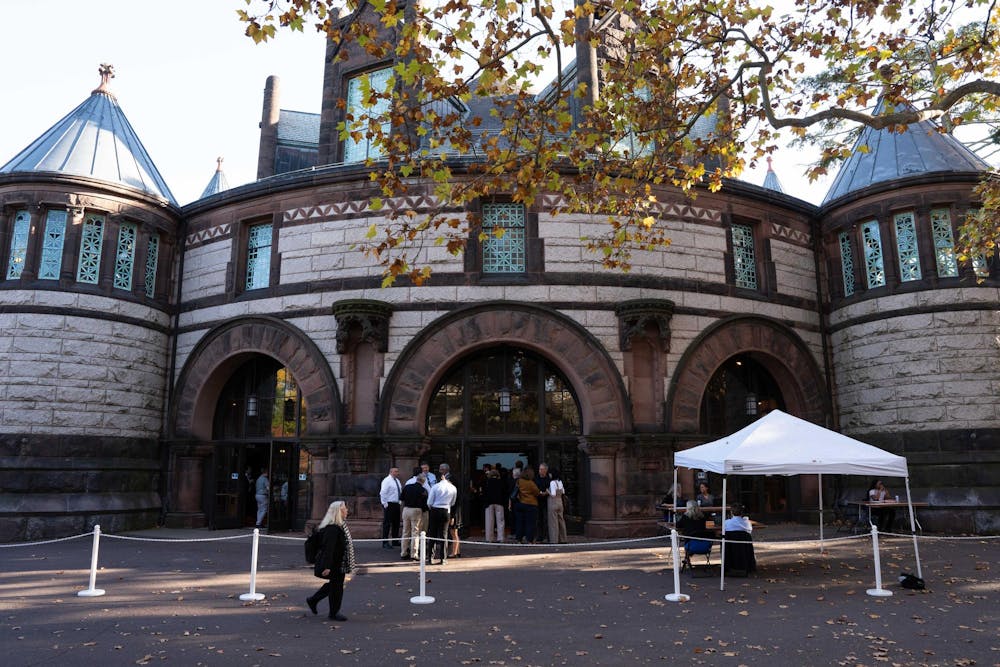The following is a guest contribution and reflects the author’s views alone. For information on how to submit a piece to the Opinion section, click here.
At their upcoming Nov. 4 meeting, the faculty will take up a proposal requiring that any contested proposals made by colleagues be subject to a remote University-wide faculty vote.
Although this proposal — requiring that all faculty have the chance to weigh in on controversial policy changes — may seem like common sense, the status quo requires only the approval of a majority of those attending a meeting in person, typically a minuscule fraction of the more than 1,000 faculty employed by Princeton. I encourage my colleagues to come to the Nov. 4 faculty meeting to support the proposal.
Under Princeton’s current rules, only five percent of faculty, amounting to 58 people this academic year, must be present to achieve quorum. In reality, many meetings are conducted with even fewer members present.
For most of the business transacted at faculty meetings, this system has worked surprisingly well. When the faculty must vote on renumbering courses in Slavic Languages, or whether to offer a new undergraduate seminar in Astrophysics, or even whether the fourth Tuesday in November will be treated as a Friday, interested faculty will show up, and any differences that weren’t already resolved before the meeting are easily settled.
As we have observed in recent meetings however, our current system is inadequate to address the weightier issues on which faculty may strongly disagree, including items that speak to how Princeton should uphold its mission and those that engage in political matters outside of the faculty’s jurisdiction. In particular, the system is woefully deficient at measuring the “sense of the faculty,” i.e. the prevailing opinion.
In 2024, there is no reason that such consequential decisions need to be made by a non-representative minority of voting faculty. That is why several colleagues and I have proposed a new measure: If a faculty proposal passes, but at least six members in attendance object after its passage, our proposal would allow for remote voting by the full faculty on that proposal.
Under this proposal, both proponents and opponents would have the opportunity to circulate a written rationale for their positions to the entire faculty, who would then have 10 days to cast their votes online. This proposal would apply only to the relatively small share of items that are faculty-initiated, not those advanced by standing committees. I encourage my colleagues to attend the Nov. 4 faculty meeting to support this proposal.

Under our current system, any six faculty can request a special meeting to put forth an extremely controversial proposal of which most members will learn only one week in advance of a vote. In such cases, the proposers will typically organize their friends to attend, while those who hold opposing views will often have to scramble to rearrange their schedules.
In the end, such meetings typically host around 60 or 70 faculty, though recently, attendance at these meetings has exceeded the capacity of the Faculty Room in Nassau Hall. The need for change was perhaps most pronounced in May, when a large number of faculty were turned away from a meeting at Nassau Hall due to space limitations, preventing them from making their voices heard despite making the effort to appear in person.
At the recent Oct. 21 meeting, more than 300 members attended, requiring the administration to move the event to Richardson Auditorium. Even then, barely a quarter of faculty members eligible to vote were present. To accommodate the entire faculty in person, meetings would need to be held in Jadwin Gym.
Having over a thousand people show up to deliberate would not be practical, either. While in smaller groups there is a value to the interchange of in-person debate, if everyone on the faculty was to spend but a minute addressing their assembled colleagues, it would require over sixteen hours to hold the meeting.

As a practical matter, most legislative bodies that are close to a fraction of the size of our faculty adopt extremely centralized agenda control mechanisms. Up until 2011, the Spanish province of Aragon allowed municipalities with up to 100 inhabitants to legislate in town meetings. Even these become hard to manage, and today, no township in Aragon with more than 40 inhabitants uses that system.
Between the benefits of a discussion among the several dozen people hastily organized to attend a faculty meeting in person and the possibility of a remote vote with both sides presenting their case, where all of the faculty can participate, the democratic option is clear cut.
Although some might be concerned that this new rule would make it too easy to challenge a winning vote, since only six faculty in attendance could object to very popular proposals, with remote voting, it would take colleagues little time to overrule such objections. Likely, norms would quickly shift to discourage such behavior.
The reality is that many faculty are simply too busy to drop everything to attend University meetings, which often conflict with childcare needs and prior professional obligations when a handful of their colleagues decide to propose a controversial change. Under this new proposal, faculty would retain their freedom to make such proposals, but the entire faculty would be easily able to register their opinion, something that is not feasible under the status quo.
I encourage my colleagues to show up next Monday and vote in favor of this proposal. If it is approved, it may be the last faculty meeting you ever have to attend.
John Londregan is a professor of Politics and International Affairs. He has taught at SPIA since 2001. He can be reached at jbl[at]princeton.edu.








